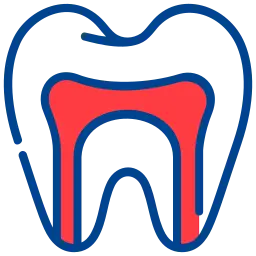
Dental Implants
Dental implants are replacement tooth roots. Implants provide a strong foundation for fixed (permanent) or removable replacement teeth that are made to match your natural teeth.

Pyria
Pyria, commonly known as gum disease is an inflammation of the soft tissue area which surround your teeth. Throughout the day a thin layer called biofilm forms over your teeth.

Gum Surgery
Periodontal surgery is a form of dental surgery that prevents or corrects anatomical, traumatic, developmental, or plaque-induced defects in the bone, gingiva, or alveolar mucosa.

Root Canal Treatment
It is a treatment sequence for the infected pulp of a tooth which is intended to result in the elimination of infection and the protection of the decontaminated tooth from future microbial invasion.

Jaw Cyst Surgery
The cyst is removed through a small incision inside the mouth and the space that is left behind is cleaned out. If it is very large, or has caused damage, the surgeon may also remove some teeth, roots and a section of jawbone. Afterwards the cyst will be sent to a special pathologist for analysis.

Apicoectomy
A root end surgery, also known as apicoectomy, retrograde root canal treatment or root-end filling, is an endodontic surgical procedure whereby a tooth’s root tip is removed and a root end cavity is prepared and filled with a biocompatible material. It is an example of a periradicular surgery.

Braces & Aligners
Aligners are thin, clear trays made to fit your teeth. Unlike metal braces, aligners are removable. The patient is responsible for putting them in and taking them out. Patients receive sets of aligners designed to move their teeth using the same method as braces: constant, gentle pressure.

Smile Makeover
A smile makeover is designed to simultaneously address multiple cosmetic or structural dental imperfections. Cracks, chips, fractures, stains, gaps, and uneven teeth alignment can make our smiles look unhealthy or prematurely aged. … Teeth Whitening.

Filling
Dental restoration, fillings, are treatments used to restore the function, integrity, and morphology of missing tooth structure resulting from caries or external trauma as well as to the replacement of such structure supported by dental implants.

Pre-Prosthetic Surgery
It is that part of oral and maxillofacial surgery which restores oral function and facial form. … The ultimate goal of pre-prosthetic surgery is to prepare a mouth to receive a dental prosthesis by redesigning and smoothening bony edges.

Teeth Whitening
Tooth whitening or bleaching is the process of lightning the color of human teeth. Whitening is often desirable when teeth become yellowed over time for a number of reasons, and can be achieved by changing the intrinsic or extrinsic color of the tooth enamel.

Wisdom Teeth Removal
Wisdom teeth are the third and final set of molars that most people get in their late teens or early twenties. Sometimes these teeth can be a valuable asset to the mouth when healthy and properly aligned, but more often, they are misaligned and require removal.

Bridges & Crowns
Crowns and bridges are a fixed solution to missing or damaged teeth. This restorative procedure uses prosthetic devices to return your smile to its natural state. A crown is used when the tooth structure is damaged or fractured. A bridge is used when one or more teeth are missing.

Scaling
Scaling is when your dentist removes all the plaque and tartar (hardened plaque) above and below the gumline, making sure to clean all the way down to the bottom of the pocket. Your dentist will then begin root planing, smoothing out your teeth roots to help your gums reattach to your teeth.

Dentures
A removable partial denture or bridge usually consists of replacement teeth attached to a gum-colored plastic base, which is sometimes connected by metal framework that holds the denture in place in the mouth. Partial dentures are used when one or more natural teeth remain in the upper or lower jaw.

Mandible Fracture
he mandible is one of the most commonly fractured facial bones, along with the nasal and zygomatic bones. Most frequently, fractures are a result of trauma, such as motor vehicle accidents, physical altercations, industrial accidents, falls, and contact sports.
